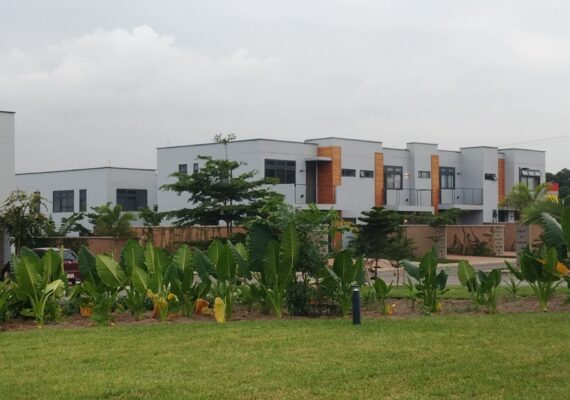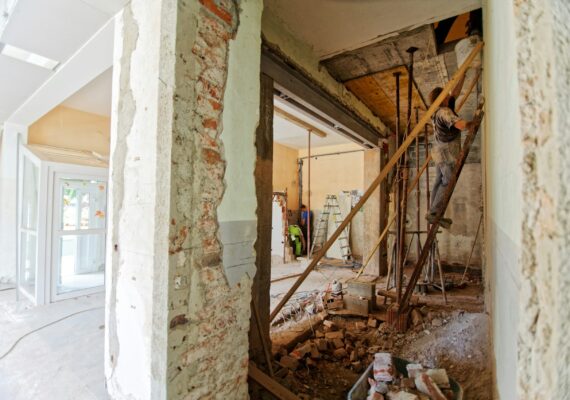Ghana is a fertile hotbed for real estate investment and development. Well, that’s probably natural for a developing country, as the UN estimates that most of the new infrastructural stock will be in developing countries.
Bang in the middle as a developing country, perhaps the massive real estate developments in Ghana should surprise no one. However, if the prospects of solid returns on Ghanaian real estate interest you or even tempt you, note these factors before you say yes.
Why invest in real estate in Ghana
Real estate is a trusted investment vehicle in most parts of the world. It holds its own against just about any asset class. And with the many tax benefits and flexibilities, you can see why.
Plus, real estate also provides a solid hedge against inflation.
These few benefits make investing in Ghanaian real estate an appealing prospect. But as in all investments, you must do your research and every little aspect of due diligence. People will talk shop and encourage you, but that may not be enough to have you invest in real estate in Ghana.
You can engage the services of a real estate advisory company in Ghana to help with the feasibility. Or you can do it alone. While doing your due diligence, these little factors should help you ensure you get the best real estate investment.
The highest and best use
In real estate development, the highest and best use principle rules. It highlights the need to find the most profitable land use to which you must put any land. For any real estate development in Ghana that you eye, ask yourself if the intended use will fetch you the highest rent/value when complete.
While you may have competing uses fighting for first place on the same site, some will work better and earn higher than others. And in many real estate developments, the quicker you can recoup your investments and return a profit, the better. One way to know how soon you can get your money back is through a detailed highest and best use analysis.
Consider planning regulations
Before any real estate development takes off, you need planning permission. And for some uses, it could be hard to obtain approval from the local assembly.
Will the back-and-forth discussions and amendments to your project be worth the wait? If it’s a time-sensitive, high-competition type of development, every little day that the planning process helps delay the project proves costly.
User compatibility
A unanimous planning approval doesn’t always guarantee your real estate project will succeed. Beyond meshing seamlessly with the surrounding real estate uses in the area, you also want users to warm to your intended investment.
That makes your real estate investment in Ghana more likely to enjoy maximum returns. Some uses just don’t jell well in some neighborhoods.
For example, you may get planning approval to site your seniors’ residence near a public school. But the noise from the students on most school days will likely make it tough to convince your customers to live there. Yes, you’ll invest in noise-reducing technology. But that only adds to your costs. And if you can’t price things at a rate that helps you recoup your investments with profits, you’ll be in trouble.
Or at least to meet your investment target, you will have to readjust your numbers. Not impossible, not also not ideal.
Research competitive uses nearby
Real estate is unique, and no two properties can be alike. But it’s a competitive world out there, and a similar development as yours can affect how soon you recoup your real estate investment.
Unless it’s a high-demand real estate asset class like residential, you can’t ignore competitive uses nearby seriously. For example, in a slumping retail space market, you don’t want to site your property in a similar asset class near a big-name competitor. If you can’t match them in terms of facilities, you’ll always play catch-up with them and struggle to attract some tenant classes.
True, but taking that risk is not the worst thing in the world. You can learn to be different by offering something the competition can’t. For example, you could ask for less rent, more flexible options, etc. But that’ll only work if those moves don’t deviate from your initial projections.
Find out about future use changes in the area
It’s tough to predict the future, but you can’t overlook the need to consider future use changes before investing in real estate development in Ghana.
Times keep changing, and a type of real estate investment class today may not be super popular, say, five years from now. It’s easy to see how, for example, remote work and the rise of freelancing could affect the demand for office space. It may not have happened much in Ghana, but that’s worth considering. If that won’t make or break a deal, it must at least feature in cash flow and yield projections.
Also, plans by the local authority to put up a facility in an area can negatively affect the outlook real estate investors may have forecast. The reverse is also true. And in some situations, that should push you to go ahead with the development. So it helps to (try and) predict the future but also engage local planning authorities for their land use plans.
These little factors can affect your real estate investment in Ghana
In real estate investment, you can’t always get every prediction right. But you still have to take the shot anyway. Even if the numbers make an undeniable case for you to jump into any real estate development in Ghana, these little factors are worth a second look.
You don’t want to suffer any investor regrets because you disregarded these little factors. Real estate is costly, and an investment that brings in no returns is even more so.





[…] should have been the status quo, given the often long-term nature of real estate. But sometimes, because of slow supply, many real estate companies still enjoy stellar sales with […]